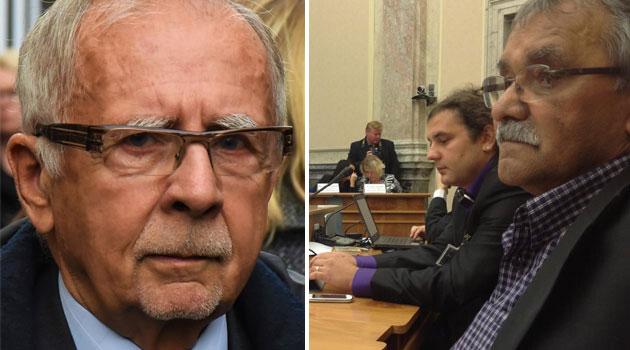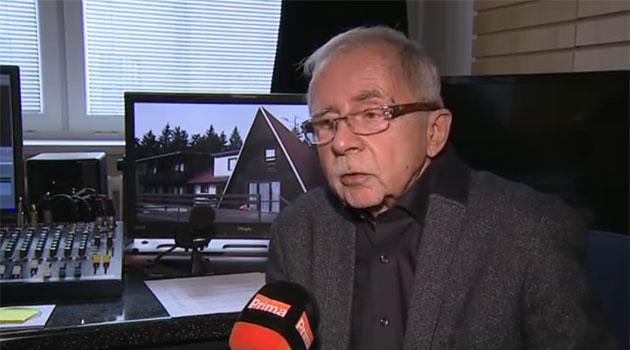Volunteer civil society members of Czech Govt Roma Council: ombudsman intentionally undermining the dignity of Romani people

Several volunteer civil society members of the Czech Government Council for Romani Minority Affairs issued a statement yesterday criticizing the current Public Defender of Rights (ombudsman) in the Czech Republic, Stanislav Křeček, for his publicized remarks about the Government’s draft Roma Strategy for 2021-2030. The civil society members observe that the ombudsman seems not to understand the extent of his own powers when he alleges that the production of a report reflecting new findings in relation to the issue of illegally-performed sterilizations would not be part of his purview.
The ombudsman also remarked that the draft Strategy is an “unrealizable” document compiled without knowledge of its subject matter, which the civil society members believe is an unacceptably prejudiced thing to say. Křeček publicized his official comments on the draft Strategy last week, which is meant to outline the direction of Roma policy for the next 10 years.
In those comments, as in his previous remarks, the ombudsman belittles the idea of discrimination against Romani people in the housing sector in particular, criticizes the claim that there is not enough data available to assess the situation, and proclaims that too few Romani people have beeen involved in solving “integration”-related problems. The comments, which cover two A4-sized sheets of paper, also express the ombudsman’s refusal to contribute to the process of arranging for redress to women who have been unlawfully sterilized.
The ombudsman called that comment a “fundamental” one. In their statement, which news server Romea.cz publishes in full below, six of the civil society members of the Roma Council say “[The ombudsman] absolutely denies the fact that Romani men and women who are experts were actively involved in contributing to the wording of the Strategy at issue. In other words, this Strategy was unique in terms of its involvement of both Romani people and bureaucrats from the state administration, which decidedly does not indicate that the necessary participation by the main stakeholders has been forgotten.”
Volunteer civil society members of the Czech Government Council for Romani Minority Affairs on the remarks by JUDr. Stanislav Křeček
The Public Defender of Rights has had an opportunity to familiarize himself in detail with the draft Romani Integration Strategy 2021-2030 within the framework of the commenting procedure and to express his view of it in the informed way that such a process requires. A situation in which a Public Defender of Rights expresses his views on a document that has yet to be approved, not just by doing so in a non-standard way, but also by doing so absolutely untruthfully, must be considered undesirable, because it does not correspond to either the meaning or the principles of such a law-making process. His repeated ignorance of the scope of his own powers is especially grave when he alleges that producing a report reflecting on new knowledge with respect to illegally performed sterilizations would not be within his purview. He defends that claim by intentionally distorting information to suit his own purposes, presenting a description of just those parts of his duties that allow him to claim this would not be his responsibility.
We have been repeatedly forced to remind the Public Defender of Rights that, according to the Act on the Public Defender of Rights, the holder of that office is supposed to “perform activities in matters of the law on equal treatment and protection from discrimination” in accordance with the Act on Antidiscrimination, which outlines the right to equal treatment and the ban on discrimination, including with respect to access to health care and its provisions.
Per Section 21b of the Act on the Public Defender of Rights, the holder of that office is able to contribute to advancing the right to equal treatment that is enjoyed by all persons irrespective of their racial or ethnic origin, nationality, sex, etc., and is able to perform research for those purposes. As his deputy briefly explained to the public in her press release in October, changes occurred to the legal options available to forced sterilization victims several years after the adoption of the Final Statement of the Public Defender of Rights in the Matter of Sterilizations Performed in Contravention of the Law and Proposed Remedial Measures in 2005, and the current bill in the lower house addresses that situation.
It seems that Mr Křeček is of the opinion that informing the public about how the situation has developed with respect to compensation of these harms represents incorrect participation by his office in providing redress. We believe that his intepretation of what the draft Strategy proposes is too rigid, especially given that in his own comments he states, among other matters, that his predecessor JUDr. Otakar Motejl reviewed the question of illegally performed sterilizations and issued his Final Statement in 2005 with measures proposed for redress, suggesting the consideration of the adoption of legislation that would facilitate compensating those harmed by these unlawfully performed sterilizations.
Despite his sky-high ignorance, as described above, and despite his lack of willingness to accept the full scope of his powers, Mr Křeček continues to remain secure in the position of ombudsman.
Furthermore, we consider his remarks about the Strategy being an unrealizable document put together without knowledge of the subject matter to be unacceptably prejudiced. Not only is he publicizing in advance and “outside the procedure” his own opinions about the matters under discussion and anticipating an outcome for which there is no basis, he absolutely denies the fact that Romani men and women who are experts were actively involved in contributing to the wording of the Strategy at issue. In other words, this Strategy was unique in terms of its involvement of both Romani people and bureaucrats from the state administration, which decidedly does not indicate that the necessary participation by the main stakeholders has been forgotten.
Taken within the context of all the previous remarks made by JUDr. Stanislav Křeček, his approach is not surprising. For that reason, we believe he should reflect on how effectively or how well he is even doing his job, especially since he is intentionally undermining the dignity of Romani people, in direct contravention of the role he has to perform, and degrading not just his own person thereby, but also the office he represents.
We assume that the ombudsman is aware of the procedures that exist to facilitate discussions among the advocates of different opinions at the Czech Government Council for Romani Minority Affairs, of which the ombudsman is also a member, and that he will take advantage of such an opportunity; exchanging opinions through the media is not a dignified way for the ombudsman to perform his role.
Jan Husák
Alena Drbohlavová Gronzíková
Gwendolyn Albert
Čeněk Růžička
Zdeněk Guži
Tomáš Ščuka
